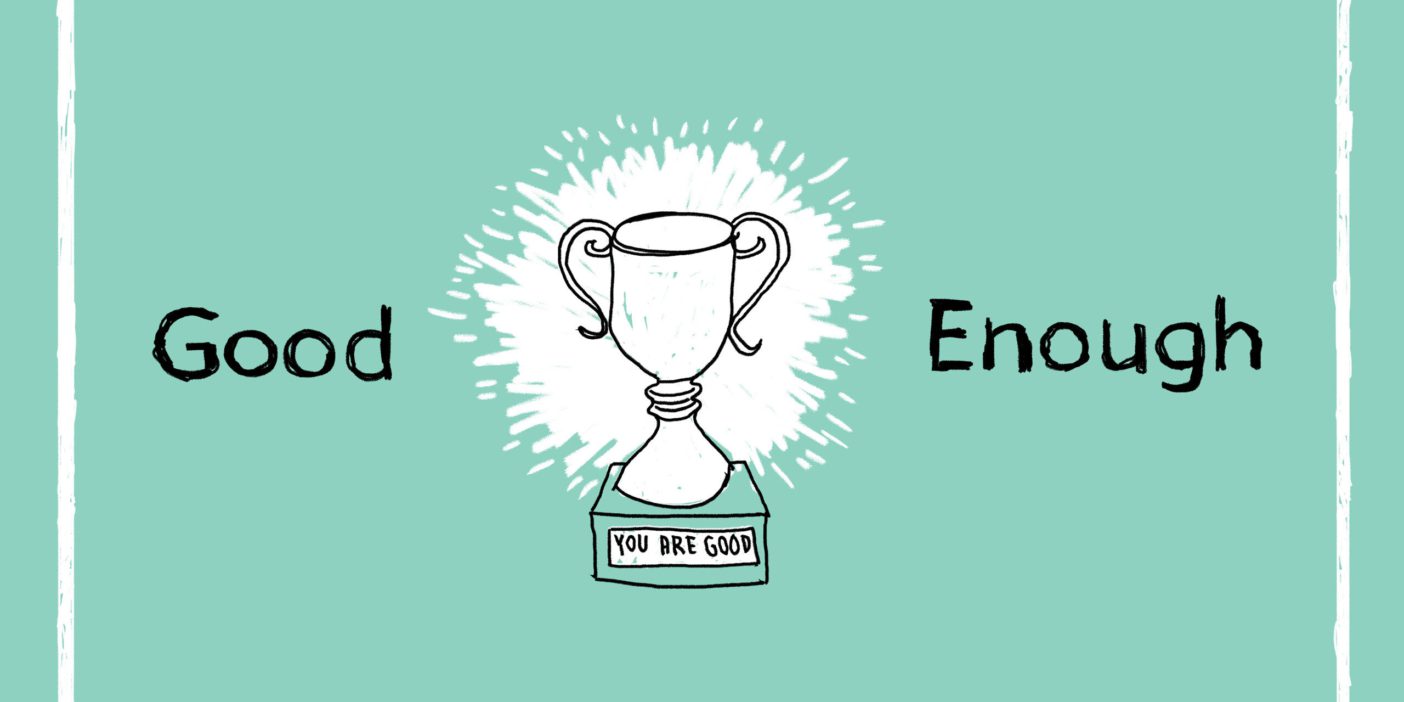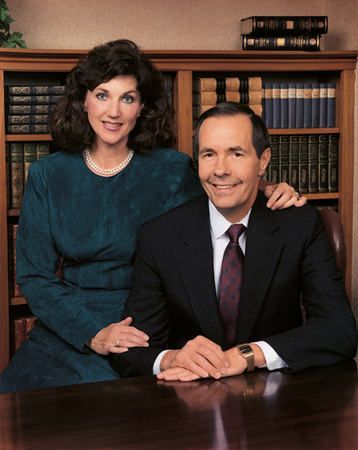By Lisa Ann Jackson
The BYU Honor Code has long been a hot topic in the Daily Universe. Regular readers over the years have frequently found letters facing the beard question, editorials jumping feet-first into the socks issue, and lengthy debates on shorts. There are repeated discussions on honesty and chastity, curfews and housing, and beneath it all runs a steady strain of dialogue about honor and integrity and the value of staying true to a signed statement.
In the sometimes self-conscious atmosphere of a college campus, such stories come as no surprise; few campus dwellers are shocked to find articles on the Honor Code in the Daily Universe. Even an occasional piece in the Salt Lake Tribune or on KSL television doesn’t raise very many eyebrows. But when the Honor Code starts headlining repeatedly in statewide media and even makes it toESPN, Sports Illustrated, and CNN, it’s a different story.
Such was the case in June 1999, when an investigation about an alleged Honor Code violation by a football player led to a flurry of stories and the player’s withdrawal from school. The press attention was reminiscent of the December 1998 media feeding frenzy that came as Honor Code violations left BYU football short a starting cornerback and its star runningback. The June and December incidents followed a string of high-profile cases that have kept BYU on the tip of the media tongue during the last couple of years.
If you sat down and started counting the BYU sportsters whose names have been mentioned by reporters in the same breath as “the BYU Honor Code,” you would have to use two hands, maybe three. And if you started counting the number of myths, misconceptions, and inaccuracies printed about the Honor Code, you might have to get your feet involved, too.
That’s where the real story lies. Athletes have been the focus of precipitating events, but the story is bigger than them.
The story is about BYU students as a whole and the Honor Code specifically. It’s a story about myths swirling around campus and thriving in local and national media. Administrators charged with holding students accountable to their Honor Code commitments have decided to speak out and set a few things straight about how BYU handles Honor Code violations. After all, most of the misconceptions are not about violations but about how BYU deals with them.
“We decided that we need to get the facts out on the table and let people draw their own conclusions rather than the media drawing conclusions for them,” says Alton L. Wade, vice president of student life. Accordingly, this article is an attempt to provide the oft-missing element of Honor Code media coverage: the BYU administration’s side of the story.
MYTH: KEEPING QUIET
Maybe the first myth to dispel is that Honor Code officials don’t talk. In fact, they can talk about many issues; they simply have chosen not to discuss some.
The reason they haven’t been obliged to give the media information is primarily a matter of precedent. Honor Code administrators have taken their cue from the LDS Church’s no-response policy when it comes to media frenzies. Thus BYU’s policy regarding Honor Code dealings has been “Say nothing, and take the heat in stride.”
Following that policy has generally worked for BYU. But in the wake of the recent high-profile cases, administrators decided to break their silence.
“In the past we haven’t had as much media attention to individual cases, so there hasn’t been something to clarify. We’ve just been happy to let people have their privacy,” says Janet S. Scharman, assistant student life vice president and dean of students. “But even with so many inaccuracies printed in these cases, we were not in a position to come back and say, ‘There’s almost nothing here that’s true.’ And knowing that we have a process that has a lot of integrity in it, we thought if people understood that process it might dispel many of their concerns.”
Having said that, BYU officials have not, will not, and cannot discuss with the media or anyone else the specifics of individual cases. The Family Educational Rights and Privacy Act of 1974 (FERPA) restricts what personal student information the university can release without student consent. But more than that, university officials believe it is just not necessary to make those details public.
“Even if FERPA were not there, we wouldn’t want to reveal information, because it wouldn’t help anybody,” Wade says. “Our purpose is to help individuals, not hurt them.”
So the media is free to find other sources and speculate as to why students are being reviewed. But why students come under review is not the source of most long-standing myths about the Honor Code. Most myths surround how students get “caught” and “punished.” And that process is something officials can talk about.
Ironically, it was a couple of penitent newspaper men who convinced Honor Code administrators to open up. Wade relates that a sports editor at Provo’s Daily Herald received a phone call from a person close to a recent athlete situation. To that point, commentary from the player’s teammates, family, and friends had dominated the media, much of which questioned BYU and the decisions handed down.
But after an hour on the phone, hearing a detailed and very different version of the story than had been given by others, the writer decided that it was time to lay off BYU. Then he talked with a fellow sports writer, and the two decided that rather than lay off, they would give BYU a chance to tell its side of the story–not this particular athlete’s story, but the broader Honor Code enforcement story.
MYTH: POLICE STATE
“Enforcement” is actually the first word officials want to strike from that story. Administrators are quick to dispel the idea that the Honor Code is enforced with fanatic zeal and violators are strung up by their fingernails.
Yet a sense of enforcement seems to persist. A survey of current students conducted in February by BYU’s student news lab, NewsNet, found that more than 57 percent of the respondents believed that the university police report Honor Code violations.
Administrators clarify that there is no formal relationship between the university police and the Honor Code Office. Reporting Honor Code violations is not within the police department’s official responsibility, says Steven M. Baker, director of the Honor Code Office. Campus police enforce public law, and the Honor Code Office assists students with Honor Code issues; these independent responsibilities are strictly adhered to, Baker says.
Administrators insist that policing students is quite foreign to their mind-sets. Honor Code counselors and staff, they say, are motivated to support and assist, not catch and punish.
“‘Punishment’ is not even part of the philosophy,” Baker says. “We don’t view our role as punitive or enforcement, but as what can we do to help people, to educate them and help them get things right, not only with the Honor Code but with themselves.”
MYTH: SPIES AMONG US
So if the cops aren’t after Honor Code violators, who is? Carri Jenkins, director of media communications at BYU, often fields questions from the media about Honor Code spies or about students being encouraged to rat on each other. Her response: “Of course that is not the case.”
The NewsNet survey indicates that most students understand this. More than 65 percent of respondents said they did not think the Honor Code Office employs students to report violations. And in case there was still confusion, Wade sent a letter to students in February, part of which reiterated that there are absolutely no “roaming spies assigned to find people breaking the Honor Code.”
So if not from roaming spies, where do referrals come from? Stories abound about how someone was anonymously turned in or handed a referral card. It is true that the student-run Honor Code Council (now called the Student Honor Association) initiated a referral card system in the mid-1990s, but Wade brought the system to a quick end, and the cards are no longer in use. As for anonymous tips, “We don’t take anonymous reports,” says Scharman. “If someone is not willing to put their name to it, we won’t act on it.”
But official referrals can come from basically anyone–roommates, classmates, faculty, or landlords. Wade, however, also clarified this point, noting that while the Honor Code asks students to “support others in their commitment to comply with the BYU Honor Code,” it is not a directive to nark. Rather, administrators advise students to first do what they can to help someone keep his or her commitments. If they need assistance they can contact the Honor Code Office for advice.
Referrals also come from various service points on campus, such as the testing center, school-sponsored dances and activities, and the library.
“If a student goes to a service point and is clearly out of compliance with dress and grooming standards, employees have been asked to either deny them service or ask them to come properly dressed next time,” says Wade. “If the student is belligerent, employees are encouraged to send in the student’s name because there is obviously a problem other than just being out of standards.”
Some survey respondents also did not seem to understand that LDS bishops have no role in the referral process. One-third of the respondents believed that bishops are required to report Honor Code violations, and two-thirds felt that bishops report violations whether required to or not.
According to administrators, bishops do not report Honor Code violations confessed to them in confidential interviews. If the Honor Code Office has any dealings with a bishop–or anyone else with whom a student has a confidential relationship–it is only with the written consent of the student after the student has been reported through another means.
“The bishop determines the student’s standing with the Church, and we determine the student’s standing with the university. They are two separate actions,” Wade says, adding one caveat. Bishops are required by the BYU Board of Trustees to inform the school if a student is excommunicated or disfellowshipped or has officially disassociated him- or herself from the Church.

“The Honor Code is one of the very fundamental educational process going on at this institution.” -Alton Wade
MYTH: GUILTY UNTIL PROVEN INNOCENT
If skeptics aren’t concerned about how a name gets to the Honor Code Office, then they are concerned about what happens once it’s there–fearing that people are treated unfairly or presumed guilty. In the NewsNet survey, of those respondents who had known someone who was reported to the Honor Code Office, 31 percent felt the cases were not handled fairly. But of the respondents who personally had been involved with the Honor Code Office, only 12 percent felt they were treated unfairly. The findings suggest that those who understand the process firsthand (at least those who are still in school) don’t share the perception of unfairness.
“Knowing the process makes a lot of difference,” says Baker. “When I explain the process to someone who is upset, though they may not agree with the conclusion, they almost always say that it makes sense–and that they had no idea that was how it worked.”
The process itself has evolved alongside the Honor Code. When the first honor code was drafted in 1948, it was a student-administered statement of academic honesty. It evolved into an institutionally administered code that has even included issues as broad as civic and state duties. Today, it focuses on academics, morality, living standards, and attire. Each student signs a statement of agreement when he or she enrolls and each succeeding year.
“It’s a living, breathing document that does change,” says Jenkins. The methods of handling violations and ensuring compliance also change from time to time. Administrators have spent years creating and improving the process of handling violations and feel they have developed a process that is thorough and fair.
“We have tried very, very hard to build several steps in the process so the student is treated fairly and feels like he or she has been heard and understood,” Scharman says.
It begins with a referral. Honor Code staff first review the situation and decide if there may be a violation. First-time referrals for violations of the dress and grooming standards are not investigated by the Honor Code Office. Instead, such situations are handled with a warning letter and an invitation to meet with an Honor Code counselor, if the student desires further information or wants to contest the referral. In more serious cases, such as those involving dishonesty, immorality, drugs or alcohol, the Honor Code Office will begin an investigation. If an initial check turns up little evidence that the violation actually happened, then the case is dropped. If they can substantiate the claims of the referrer, Honor Code Staff will contact the student and continue to gather information from sources the student and the referrer provide.
When the staff is satisfied that they have determined the facts as closely as they can (a process that can take weeks), the information is presented to the Honor Code Committee to determine an action or recommendation they feel is appropriate for the situation. Those actions may include education and counseling, an official warning, or probation. The office can also recommend to the university that the student be suspended or dismissed. Since 1998 the Honor Code Office has not had authority to suspend or dismiss students. If suspension or dismissal is recommended, the case is reviewed by the associate dean of student life. The associate dean then interviews the student before taking action.
But Baker indicates that dismissals are rare and violations are relatively low in number. With more than 30,000 students on campus, the Honor Code Office reviews just a few hundred allegations each year. Of those allegations, approximately 2 percent result in temporary suspensions, and about 1 percent result in dismissals.
When a decision is made, the student has the right to appeal the decision and seek an independent review of the case by either an individual or a committee whose function is to ensure that established university procedures were followed and that the conclusions drawn were reasonable based on the information available. A final recommendation is then made to the dean of students, who makes a decision.
But appeals are rare, says Wade, because the process is so thorough. By the time a case is decided, it has gone through three or four review stages.
ON YOUR HONOR
Despite misconceptions, most students believe in and try to adhere to the Honor Code. At issue is not the notion of rewriting or discarding it, but rather upholding and respecting it. In the NewsNet survey, only about 5 percent admitted to having negative feelings about the Honor Code.
“The students understand the Honor Code and want to live it,” says Jenkins. “When the media would ask me if they could go out and interview students, I would welcome them to do that. Students are so articulate, and they wholeheartedly backed the decisions being made.”
The NewsNet survey supports Jenkins’ observations. About 90 percent of the respondents felt that everyone at BYU should be held to the same high standards set by the Honor Code.
Even in the recent high-profile cases, few have demanded that non-LDS athletes receive more leniency than other students. Rather, it has become clear that non-LDS students–especially non-LDSathletes, who are often recruited from environments very different from BYU–need more support to help them keep their commitments to the Honor Code.
BYU has taken action by creating the Student Athlete Center and a new recruitment video that discusses the Honor Code (see “Helping Non-LDS Students Stay in Bounds,” p. 46). These strides are designed to help students who may not have the ecclesiastical support system that LDS students have.
“LDS athletes have a bishop, and if they have problems and they want to go to their bishop in confidentiality they can do that, and we may never know about it,” Wade says. “But some nonmembers may not have anyone to whom they can go.”
Working through problems and encouraging personal growth is what the Honor Code is all about, says Wade. “The process of Honor Code compliance is really part of the educational process,” he says. “After all, if character building is one of the four aims of a BYU education, then the Honor Code itself becomes part of the curriculum for character development just like chemistry principles become the curriculum for chemistry.
“So to require compliance–to ask for accountability to the principles embodied in the Honor Code–is not an insignificant thing. It’s one of the very fundamental educational processes going on at this institution.”










